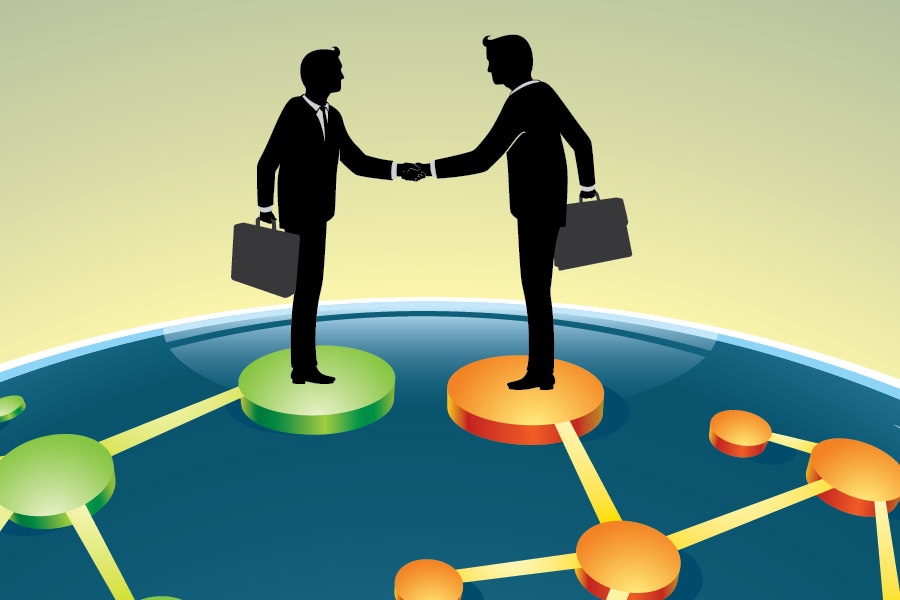
How business models can make or break a merger
Companies with unlike models are more apt to suffer from clashing corporate identities

An airline is looking to expand through an acquisition. Should it acquire another airline in a different region or acquire another product category altogether, such as a chain of hotels?
The best way to answer this question may hinge on an oft-neglected factor: the business model of the acquisition target. Discount, premium, online-only, you name it: how a company "does business" is as important, or more so, than the geographic or product market in a merger. According to research by Timo Sohl and IESE's Govert Vroom, when two companies have similar business models, they make better partners.
Introducing the concept of business model relatedness, Sohl and Vroom maintain that companies with akin models may share tacit knowledge better. In contrast, companies with unlike models are more apt to suffer from clashing corporate identities.
Looking for Merger Success
While M&As, on aggregate, tend to create value over the long term, most fall short of expectations. That is according a 2016 study by the consultancy Bain. So, how might the losers learn from the winners?
In the Bain survey, 55 percent of executives said that the root cause of deal disappointment was overestimated synergies.
Why might management overestimate merger synergies? One cause is the failure to realize that their unique business know-how is hard to transfer. Another is that conflicting corporate identities destroy value. So much focus is put on the product and the geographic market, how business gets done may be neglected in M&A.
"How?" Is a Key Question
For example, LAN Airlines of Chile merged with TAM Linhas Aéreas of Brazil in 2012. The post-merger LATAM has had a bumpy ride. In the authors' view, integrating its discount and full-service business models for passenger and freight carriers deserves a share of the blame. The discount and full-service models operate on different logics.
Keep in mind that business model design, implementation and validation all involve know-how that is developed internally and idiosyncratically. This is the specialized knowledge that is valuable yet can be harder to share in mergers of dissimilar business models.
In another high-flying example, easyGroup, owner of easyJet, branched out with a hotel chain operating with a similar discount business model. The corporate identity stayed consistent, and the two lines of business benefitted from each other.
According to Sohl and Vroom, how business gets done is a key question for merger success. Specifically, when two companies' business models are related, they may have more success sharing their unique expertise in a merger, no matter if they are booking flights or hotel rooms. That expertise may be in efficient customer service or economical IT systems. But if it works for their way of doing business, it will become valuable to share, if the acquired company has a similar business model.
Methodology, Very Briefly
Integrating research on business models, diversification, and acquisition strategy, this study provides a conceptual analysis of how business model relatedness may influence performance implications of M&As.
This article is based on Mergers and Acquisitions Revisited: The Role of Business Model Relatedness
[This article has been reproduced with permission from IESE Business School. www.iese.edu/ Views expressed are personal.]
X





